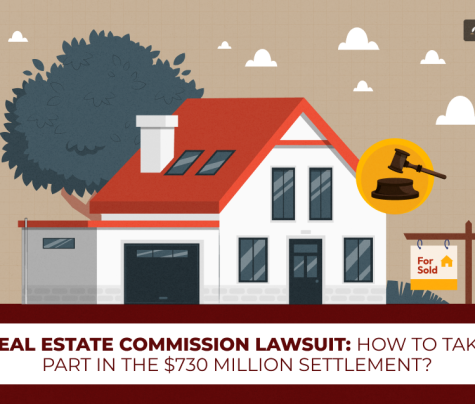
We all know how difficult it is to draft a will and plan your estate. However, if you are planning to get that done, understanding this process is important. and this is where our will and estate planning checklist comes into play!
You see, we all want to protect the assets which we have worked hard for our entire lives. Additionally, we want to ensure that after our death, these assets are distributed among the inheritors according to our wishes.
And that is the reason why I am here to convince you about the importance of estate planning. You see, it is not just about creating a document. Rather, it’s about making sure that your legacy is taken care of. It is a document that reflects your wishes and your care for your loved ones.
But you see, there are many people who put off will and estate planning. They often hold these at a very low priority. However, life is unpredictable. That is why it is important to address this task sooner rather than later.
But what are some of the things that you need to keep in mind? And how to make one?
Hi. In today’s blog, these are some of the things that I will be talking about. So, if that is what you want to know, keep on reading this article till the end, and thank me later!
Will and Estate Planning Checklist: How to Create the Perfect Will for Your Estate?
So, you want to create a will and plan your estate so that there are no disputes after your passing? Well, while it is a great step that you are willing to take, it is important that you know what to do.
You see, these are really complicated matters. And, needless to say, one wrong step can end every single bond between your family members after your passing.
While we all have seen scenes of executors announcing the will of the deceased, this is hardly THAT simple. So, to ensure that you are doing the right thing and are on teh right track, I have curated the ultimate will and estate planning checklist.
Here are some of the things that you will need to keep in mind:
Understand the Basics of Wills
First and foremost, it is very important that you understand what a will is and why you need it. While most of us know what it is, let me explain it a little in brief to those who don’t have a formal idea.
So, a will is a legal document that explains how you want your assets to be distributed among your heirs and inheritors.
And it is not just related to properties. A will also outlines who is going to take care of your children, and how/who will manage your affairs after you die.
Now, while it really is a clear way of expressing your thoughts and wishes, it is not really an easy thing to do. Rather, it is something that requires careful thought. You can state who gets what and ensure your loved ones are cared for.
When you are trying to create your will, you can use an online template. However, most of the time, these templates might miss some of the most important legal details.
Additionally, different places have specific rules for wills to be valid. Therefore, it is best that you take the help of a lawyer who has expertise in this area of law.
They can guide you through the laws to ensure your will is valid and effectively communicates your intentions. And this is something that I am going to cover in the following point!
The Role of a Wills and Estates Lawyer
Secondly, as I have already mentioned, having a wills and estates lawyer can make the estate planning process a lot easier than you think. These experts are there to help you draft your will, which really meets your needs.
Additionally, they can answer all your questions that you might have about legal terms, taxes, and estate management. This will help ensure that you know what to expect later on in the future.
Apart from that, a lawyer not only helps you create your will but also makes sure it remains effective over time. You see, your will and estate plans need to have all the updates of your life events.
Furthermore, a lawyer can also advise you on when to revisit your will. And how does this matter? Well, it genuinely helps you make updates to keep your plan relevant.
Choose the Right Executors
Choosing an executor is one of the most critical decisions in your will. This person will fulfill your wishes, distribute your assets, pay debts, and manage your estate’s finances. Select someone you trust who is honest, reliable, and organized.
Think about someone who understands your goals and is willing to take on this responsibility. This is an important choice, so have open discussions with your executor about your plans.
Communicate Your Wishes Clearly
Once your will is ready, clear communication is key. Discussing your wishes with loved ones is important, especially if you have specific requests.
Being open can prevent misunderstandings and conflicts after you are gone. You want your family to be prepared, so sharing your plans is helpful.
Talking about your decisions helps you explain your choices and can provide comfort to your loved ones. Good communication reinforces your intentions and can strengthen family bonds.
Use Trusts in Your Estate Planning
When planning your estate, consider using trusts along with a will. A trust is a legal setup where a trustee manages beneficiary assets. This gives you more control over how and when your assets are shared, making transferring wealth easier.
One major benefit of a trust is that it can help you avoid probate. Probate validates a will and distributes assets, which can take time and money.
Assets in a trust usually skip probate, so your family can access their inheritance faster and with fewer complications.
Trusts can also have tax benefits, support minor children or people with disabilities, and protect assets from creditors.
Depending on your situation, a wills and estates lawyer can help you decide if a trust is a good choice and guide you on how to set it up correctly.
Plan for Incapacity
While many people focus on estate planning for after they die, it’s also vital to plan for if you become incapacitated. This may happen due to illness or injury that prevents you from making decisions about your health and finances.
Additionally, creating legal documents like a power of attorney (POA) and a healthcare directive ensures your wishes are followed even when you cannot express them.
A power of attorney lets you choose someone to handle your financial matters if you become incapacitated. This includes paying bills, managing investments, and making other financial choices.
A healthcare directive or living will outlines your medical preferences, such as what treatment you want or don’t want.
Planning for incapacity protects your interests and relieves stress for your loved ones during tough times. By discussing your wishes with your chosen agents and involving them in the planning process, you ensure that everyone understands the decisions that may need to be made.
Keep Your Documents Safe and Easy to Find
After you’ve worked hard on your will and other important estate planning papers, keeping them safe yet easy to access is crucial.
Store your documents in a fireproof safe or a bank security box. Make sure your executor or trusted family members know where to find them.
It’s also helpful to discuss the contents of your will and any other estate planning papers with your executor. This way, they will know what to look for when it comes, making a difficult situation a bit easier.
Review Your Will Regularly
Finally, it is best to review your will regularly and update it as and when you need. According to experts, it is best to review these ideally every few years or after major life changes.
For instance, major life-changing events like marriage, divorce, having a child, or changes in your finances are some of the most important things that you need to update in your will.
Additionally, by reviewing and updating your documents (read: your will), you can make sure that your estate plan matches your current needs and wishes. And TBH, this is very important.
Ultimately, a will and estate plan that you have created, keeping everything in mind, gives you peace of mind. It ensures that your loved ones will be taken care of and your wishes will be followed.
Wrapping It Up!
In conclusion, having a will and estate planning checklist at hand ensures that you are able to clearly define your wishes related to your property and assets. Ultimately, these are the things that you have worked hard for your entire life.
Additionally, this is the best way to ensure that there are no legal complications after your passing when it comes to teh distribution of your assets among your inheritors.











0 Reply
No comments yet.